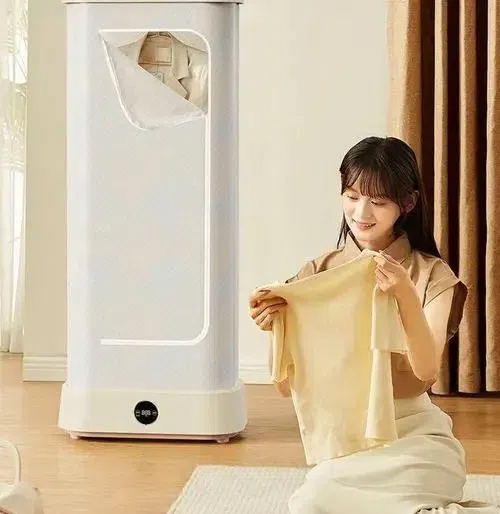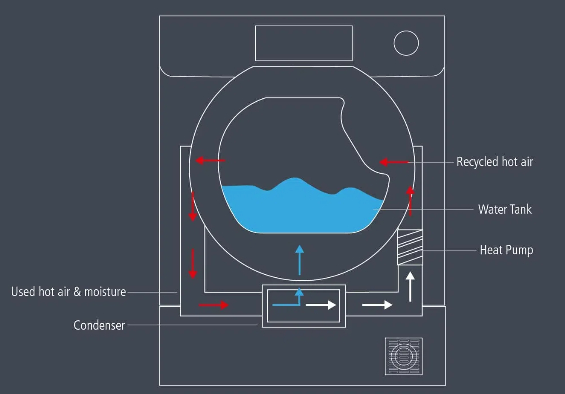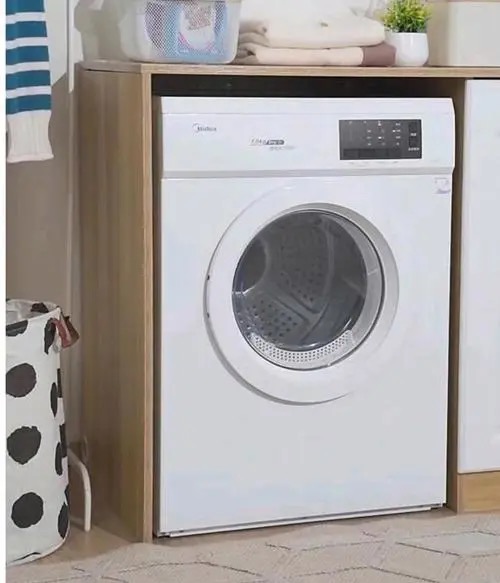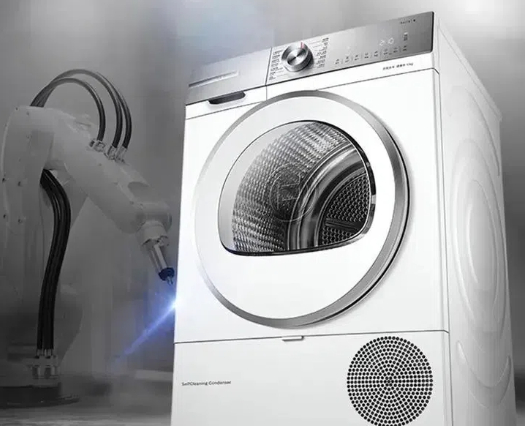
Content Menu
● Introduction to Heat Pump Dryer Technology
● How Heat Pump Dryers Work
● Key Benefits of Heat Pump Dryers
>> Energy Efficiency
>> Gentle on Clothes
>> Environmental Impact
● Smart Features and Technology
● Installation and Space Requirements
● Maintenance and Care
● Cost Considerations
● Choosing the Right Model
● Future of Laundry Technology
● Frequently Asked Questions
>> Q1: How long does a heat pump dryer take to dry clothes?
>> Q2: Do heat pump dryers need to be vented?
>> Q3: How much can I save on energy bills with a heat pump dryer?
>> Q4: Are heat pump dryers worth the investment?
>> Q5: How long do heat pump dryers last?
Introduction to Heat Pump Dryer Technology
A heat pump dryer represents one of the most significant innovations in laundry technology over the past decade. This revolutionary appliance has transformed how we think about drying clothes, offering an energy-efficient and fabric-friendly solution for modern households. Understanding how these sophisticated machines work and their benefits can help you make an informed decision about upgrading your laundry setup.
How Heat Pump Dryers Work
Heat pump dryers operate on a fascinating principle that sets them apart from conventional dryers. Instead of expelling warm air like traditional dryers, they recycle it through an innovative heat exchange system. The process involves several key steps:
1. Air Circulation
2. Moisture Extraction
3. Heat Exchange
4. Air Recycling
The system continuously reuses hot air, making it incredibly efficient compared to traditional drying methods.

Key Benefits of Heat Pump Dryers
Energy Efficiency
The most notable advantage of heat pump dryers is their exceptional energy efficiency. By recycling hot air instead of continuously generating new heat, these machines use significantly less power than conventional dryers.
Gentle on Clothes
Operating at lower temperatures than traditional dryers, heat pump models treat your garments with more care. This gentler approach helps preserve fabric quality and extend the life of your clothes.
Environmental Impact
These dryers significantly reduce carbon footprint through their energy-efficient operation. Their eco-friendly design aligns perfectly with modern environmental consciousness and sustainable living practices.
Smart Features and Technology
Modern heat pump dryers come equipped with numerous innovative features:
- Moisture sensors
- Smart connectivity
- Multiple drying programs
- Self-cleaning condensers
- Delayed start options
- Wrinkle prevention systems

Installation and Space Requirements
Heat pump dryers offer flexible installation options since they don't require external venting. This makes them ideal for:
- Apartments
- Condominiums
- Interior laundry rooms
- Spaces without external wall access
Maintenance and Care
Proper maintenance ensures optimal performance and longevity. Regular care includes:
- Cleaning lint filters
- Emptying water containers
- Checking heat exchangers
- Wiping door seals
- Regular program updates
Cost Considerations
While the initial investment in a heat pump dryer may be higher than traditional models, the long-term savings often justify the cost:
- Reduced energy bills
- Lower maintenance costs
- Extended clothing lifespan
- Potential energy rebates
- Increased home value
Choosing the Right Model
Consider these factors when selecting a heat pump dryer:
- Capacity needs
- Available space
- Budget constraints
- Desired features
- Energy ratings
- Brand reputation
Future of Laundry Technology
Heat pump dryers represent the future of laundry care, with ongoing innovations including:
- AI-powered cycles
- Enhanced energy efficiency
- Smart home integration
- Improved drying algorithms
- Sustainable materials

Frequently Asked Questions
Q1: How long does a heat pump dryer take to dry clothes?
A: Heat pump dryers typically take longer than conventional dryers, usually requiring 90-120 minutes for a full load. However, this longer drying time is offset by superior energy efficiency and gentler treatment of clothes.
Q2: Do heat pump dryers need to be vented?
A: No, heat pump dryers don't require venting to the outside. They use a closed-loop system that condenses moisture from clothes into a water tank or direct drain, making them perfect for installations where venting isn't possible.
Q3: How much can I save on energy bills with a heat pump dryer?
A: Users typically save between 50-65% on energy costs compared to conventional dryers. The exact savings depend on usage patterns and local energy rates.
Q4: Are heat pump dryers worth the investment?
A: For most households, yes. While the initial cost is higher, the combination of energy savings, gentle clothes care, and environmental benefits makes them a worthwhile investment, especially for frequent users.
Q5: How long do heat pump dryers last?
A: With proper maintenance, heat pump dryers typically last 10-15 years, often outlasting conventional dryers due to their more sophisticated but durable technology.












